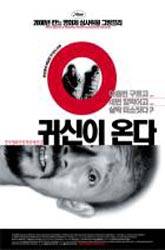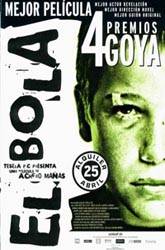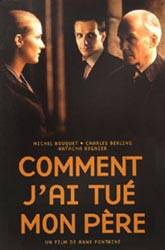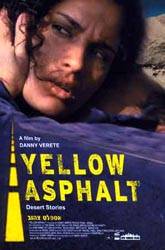 Director: Starring:
OTHER REVIEWS: |
All About Lily Chou-Chou BY: DAVID PERRY There has been a debate among cinephiles and filmmakers for a few years now on the future of film in a digital age. With digital cameras getting better and closer to film in depth and projected texture, many cinematic stalwarts like George Lucas have moved into the digital production. Lucas, of course, went digital because it meant he could work with digital effects directly on the print (or disk, I suppose) -- a decision built by ease rather than aesthetics. However, the effects are so shiny and rounded at the worst parts (while dull and jagged at the best parts) that Lucas' digital photography, however close it may look to filmic cinematography, looks horrible. He is the antithesis of filmmakers like the Dogme 95 bunch who see digital as the purest form of filmmaking, far away from the huge effects-heavy mega-productions by Lucas. Their films, though, have a grainy look that gives the affect of home videos but lack the visual awe of film geniuses like Alain Resnais and Michaelangelo Antonioni. Japanese director Shunji Iwai has finally given the closest thing to a digital Resnais film. His All About Lily Chou-Chou features some of the best visuals of the year, images that have a pristine look devoid of pixels and the various grain that has hindered the development of a seemingly filmic digital cinema. Iwai and cinematographer Noburo Shinoda have found the lighting and setups that turn their movie into a piece of art almost comparable to Darren Aronofsky's dizzying Requiem for a Dream (however, the editor for this film is nowhere near the artist that Jay Rabinowitz is). I challenge anyone to look at the film's final image and comment that it looks the least bit digital. Now whether recreating film quality on a digital medium is a true achievement could be a completely different debate. What is certain is that Iwai has written a film deserving of the visual genius he has to use on it. All About Lily Chou-Chou looks at the way loners must find solace in art. The way that his characters lose themselves in the music of fictional singer Lily Chou-Chou, a Japanese Björk whose vocals are delivered by an unbilled singer named Salyu (her identity is evidently meant to remain a secret -- it took me an hour of obsessive investigation to finally get her name from someone), is in many ways comparable to the ways drug addicts (including those found in Aronofsky's film) lose themselves in a high. Iwai makes clear that Japanese society is just as uninviting to the loners as such people are treated in America. The film's protagonist, 15-year-old Yûichi Hasumi (Ichihara), is maligned by most of the campus at his large suburban Japanese middle school. After being abused by bully Shusuke Hoshino (Oshinari) and the rest of the cliques at the school, he returns home to his mother's apartment to work on his website dedicated to Lily Chou-Chou. It is in the world of chat rooms that he is accepted -- a tangential celebrity to the internet fans of the singer. During the course of the film, Yûichi gets into regular discussions with another "Lily-phile" on the website's chat room. As the conversations begin to include personal tidbits about his day, it becomes clear that this faceless person on another computer somewhere else is the closest think to a confidante for Yûichi. Things have not always been so bad for him. Even at a younger age, he and Shusuke were friends, but athletic achievements and an election as class president has turned Hoshino into a popular student above the friendship of peons like Yûichi. There's another budding friendship for Yûichi that could lead to romance, though as much as we may root for him, it's doubtful that anything can be achieved. As the film goes into its second half, the problems inherent in a film following a person's obsession with another becomes tedious, to the point that Lily Chou-Chou's name and any reference to the Ether she supposedly lives in becomes an annoyance. Iwai has created strong characters that are wholly interesting and his visual palette creates art out of their depression. so it becomes disconcerting that he's unable to remove himself from the novelty that brought film to creation (initially, the story was merely the work of Iwai's tinkering on a Lily Chou-Chou website that attempted that followed the story of the fictitious singer). Even though the young actors do their best to create
undeniably engaging characters (there's even a little humanity brewing beneath Shusuke),
the story remains strong, and the direction is unbelievable, the film's achievement is
dulled by the very novelty that brought it to life. Initially, Iwai only meant for the
Lily Chou-Chou tale to be part of a website on the fictional character that then became a
serial novel. Having Lily Chou-Chou, a culturally famed fictional character treated as
real in a fiction film, is meant to be a sly joke for the people of Japan. For those of us
in the states, though, her presence feels like a diversion from the "real"
people at the center of the story. |







